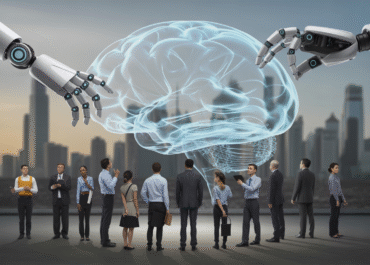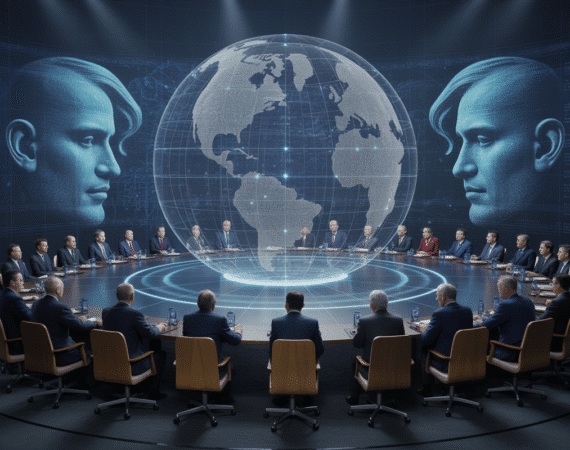Anthropic CEO Predicts 20% US Unemployment by AI in 5 Years
The rapid advancement of artificial intelligence continues to spark both excitement and apprehension across industries. While AI promises unprecedented productivity gains and innovation, it also raises significant questions about the future of employment. Adding to this ongoing debate, Dario Amodei, CEO of leading AI safety company Anthropic, has issued a sobering forecast that demands attention from policymakers, businesses, and individuals alike.
AI’s Looming Impact on White-Collar Jobs
Amodei, whose company is at the forefront of developing powerful and safe AI systems, predicts a potentially seismic shift in the U.S. labor market. According to his analysis, within the next five years, artificial intelligence could eliminate a staggering 50% of entry-level white-collar jobs. This isn’t just about factory floors or manual labor; it’s about roles traditionally considered secure, requiring cognitive skills and often serving as a stepping stone into various professional careers.
The implications of such a displacement are profound. If half of all entry-level white-collar positions are automated or rendered obsolete by AI, the ripple effect on the broader economy could be catastrophic. Amodei warns that this scenario could push the overall unemployment rate in the United States to an unprecedented 20%. To put this in perspective, the highest unemployment rate during the Great Recession of 2008-2009 peaked at around 10%, while the COVID-19 pandemic saw a temporary spike to nearly 15%.
Beyond Productivity: The Societal Challenge
While AI offers immense potential for boosting efficiency, automating mundane tasks, and even driving scientific breakthroughs, Amodei’s prediction highlights the critical need to balance technological progress with societal stability. The concern isn’t just about job losses, but about the cascading effects: reduced consumer spending, increased strain on social safety nets, potential social unrest, and a widening economic divide.
Historically, technological revolutions have always led to job displacement, but they’ve also created new opportunities. However, the speed and scale at which AI is developing, particularly its ability to perform complex cognitive tasks, suggest that this transition might be far more disruptive than previous industrial shifts. The question isn’t just if new jobs will emerge, but whether the workforce can adapt quickly enough, and if society is prepared to support those left behind.
Preparing for an AI-Driven Future
Amodei’s stark warning serves as a powerful call to action. Addressing the potential for mass unemployment requires a multi-faceted approach:
- Reskilling and Upskilling Initiatives: Governments and educational institutions must invest heavily in programs that retrain workers for new, AI-complementary roles, focusing on skills that AI cannot easily replicate, such as creativity, critical thinking, emotional intelligence, and complex problem-solving.
- Policy Innovation: Discussions around universal basic income (UBI), revamped social safety nets, and new forms of worker protections will become increasingly vital.
- Ethical AI Development: AI companies themselves, like Anthropic, have a crucial role in developing AI responsibly, considering its societal impact and advocating for thoughtful integration into the economy.
- Fostering Entrepreneurship: Creating an environment where new businesses and industries can emerge from AI’s capabilities is essential for generating the jobs of tomorrow.
Dario Amodei’s prediction isn’t just a grim forecast; it’s an urgent invitation for collective action. While the exact numbers may vary, the underlying message is clear: AI is poised to fundamentally reshape the labor market. Proactive planning, innovation, and a commitment to human-centric development are crucial to navigate this transformation successfully and build a future where AI serves humanity, rather than displaces it.


